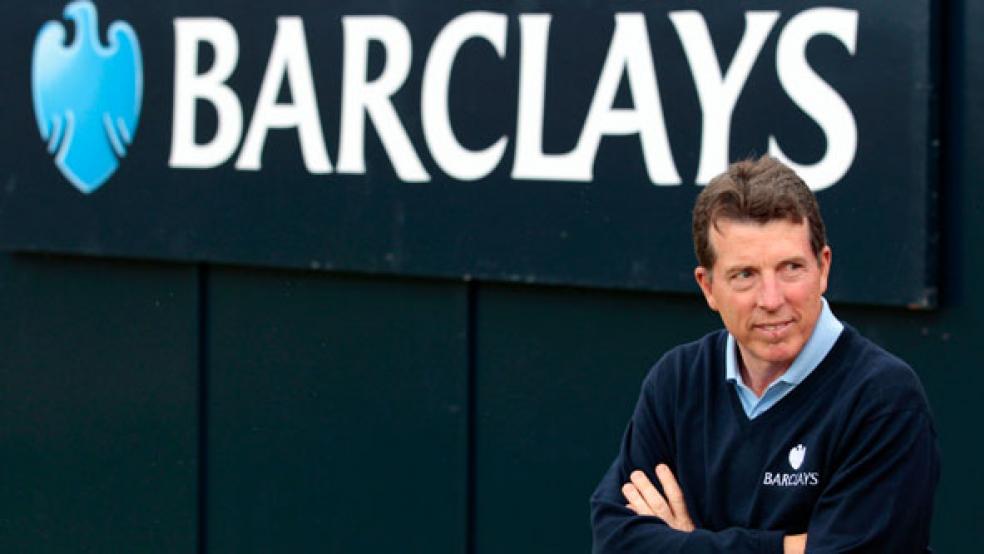After years of scandal and shame, can the banking industry overhaul its public image and even – gasp – become known for its highly principled behavior as well as its quest for high profits? Will the public even believe that a bank is sincere in such a pursuit?
That’s the challenge that Goldman Sachs (NYSE: GS), for example, still faces in the United States, years after being labeled the “vampire squid” of high finance. And it’s the quest on which Antony Jenkins, the new CEO of Barclays (NYSE: BCS), has embarked after replacing Bob Diamond, ousted in the wake of the LIBOR-rigging scandal that was revealed last year.
Feel free to call me a cynic, but I think Jenkins’ battle may be doomed from the outset, due to both its nature and its objective. Yes, Jenkins is right to refer to investment banking as “hugely valuable to society” when done “the right way.” But an overnight U-turn of the kind that he is proposing – switching from a bank whose ethos has revolved around profit maximization to one where success is measured through the more amorphous metrics of “respect,” “integrity” and “service” – is a tricky maneuver to pull off.
Even if Jenkins’ “Project Transform” succeeds to some extent, it will prove tougher to obtain some kind of recognition for that achievement from investors, accustomed to a harder-edged management style. Before the LIBOR rigging hullabaloo, investors were fairly satisfied as long as Barclays was generating a respectable return on equity and competing against its peers in the public marketplace. Shareholders were less exercised about the discrepancy between the payout to shareholders in the form of dividends and the payout to employees in the form of bonuses than they are today.
Those who believe that Jenkins can somehow pull off his overhaul of Barclays point to his decision to close the bank’s Structured Capital Markets division, a highly profitable group devoted to the controversial goal of helping the bank’s clients duck taxes. And Jenkins is paying attention to optics, too, instructing the bank’s board not to award him a bonus for his performance last year, acknowledging that the bank’s problems were ultimately attributable to its own actions and to inaction on the part of senior management.
“Saint Antony,” as he has been dubbed by some in the City of London, is making all the right noises, those calculated to appeal to the critics of banking, from politicians and regulators right down to the proverbial “man on the street.” But transforming an entire culture across a complex organization is no easy task. All it takes is a handful of rogue bankers (or, as the case may be, of policemen or priests or politicians or…) to undermine the reputation of an entire institution. In this case, Jenkins won’t just be confronting the business-as-usual culture within his own firm but that which still prevails across the banking landscape, from Wall Street to The City and on to Mumbai and Shanghai.
Part of the problem is that the biggest moneyspinner for Barclays isn’t the retail banking division, where Jenkins has his roots, but the investment banking arm, which is where the bulk of the risk lies along with most of the profits. If you want a sense of how its denizens are likely to react (at least privately) to Jenkins’s crusade, just look at the scorn that JPMorgan Chase (NYSE: JPM) CEO Jamie Dimon has heaped on the idea that banks can’t regulate themselves. That’s a muted version of the irritation that a significant number of investment bankers feel when their best judgment about how to generate impressive returns for their bank (and big bonuses for themselves) is overridden by those who don’t come from within their ranks.
If Jenkins somehow succeeds in getting his teams of investment bankers to think about their world in different terms, a tougher task remains: How will they generate the kind of profits that Jenkins has promised shareholders? Jenkins may require his team of investment bankers to focus on integrity, excellence, ethics and stewardship – but if doing so doesn’t help Barclays generate a target ROE of 11.5 percent within a few years’ time, it’s hard to believe that a few blind eyes won’t be turned to whatever the next popular form of highly lucrative products or services may be, regardless of the risks that may come in their wake.
Barclays stock rallied last week, but it wasn’t lofty comments from Jenkins that sparked the 5 percent increase. Rather, it was the announcement that the new regime will axe 3,700 employees as part of a “major reorganization” and start forking over 30 percent of its profits as dividends.
It already is clear to investors in banking stocks that it likely is only going to become more difficult to capture the same kind of profits and returns on equity that they did in the 1990s and especially in the years leading up to the financial crisis. That means there will be less willingness to tolerate lofty bonus paydays to employees – which may have ramifications in terms of the willingness of those employees to go along with Jenkins’ vision of a more ethical and possibly not quite as profitable financial institution.
What Jenkins needs to realize his vision is unlikely to materialize suddenly: a windfall source of new profits after the creation of a brand new kind of financial instrument, for instance, or the sudden and simultaneous collapse of all his major rivals. Otherwise, something has to give. Jenkins has made it clear that it won’t be the interests of shareholders, and that means that at some point, his underlings will feel the pressure to generate profits even if that means compromising ever so slightly on those lofty principles. Jenkins very probably believes every word he has uttered, and is committed to every principle he has espoused. That simply means that history is more likely to dub him an idealist rather than a hypocrite.






